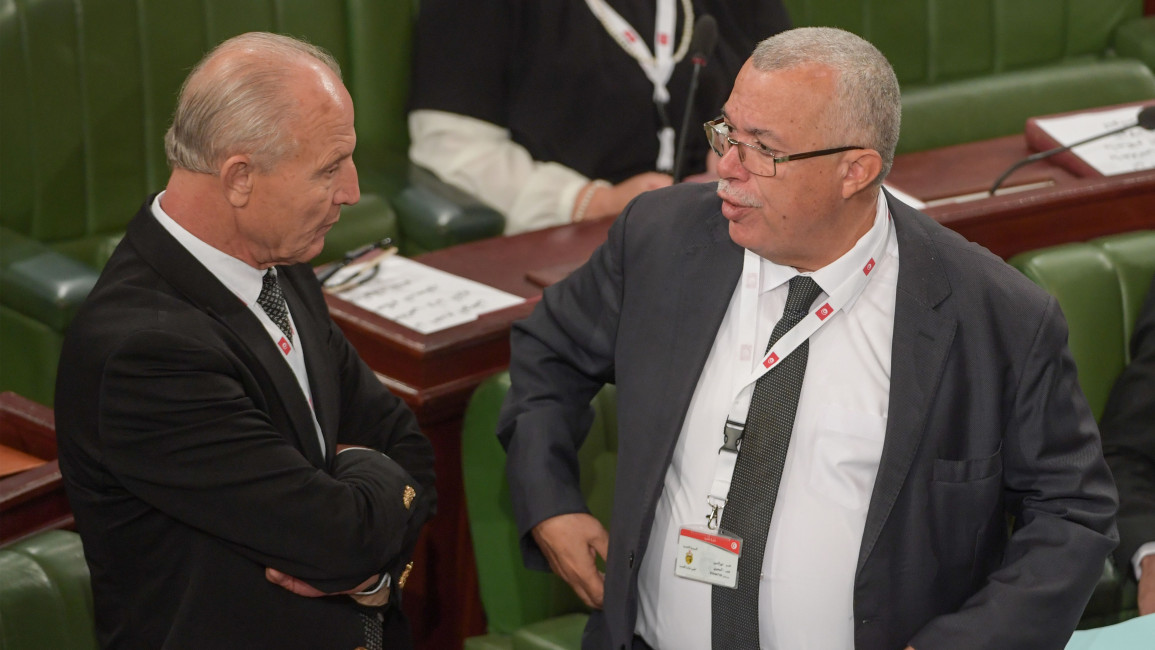Tunisia: Jailed Ennahda deputy head Noureddine Bhiri in intensive care
The jailed deputy leader of Tunisia’s largest opposition party was in intensive care Sunday after a drastic decline in his health, his wife said.
Noureddine Bhiri was taken to the Rabta Hospital in Tunis on Saturday after suffering a sharp drop in blood pressure and severe chest pains, the Ennahda party said in a statement.
Bhiri’s wife, Saida Akermi, said in a Facebook post on Sunday that he had since been placed in intensive care.
Ennahda said the decline in Bhiri’s health was connected to the hunger strike he launched in the hours after his 13 February arrest.
Bhiri was one of a number of high-profile figures targeted in a spate of arrests earlier this month. He was reportedly charged with conspiring against state security.
He underwent shoulder surgery on 15 February after suffering a fracture during his arrest.
The former justice minister has been targeted by Tunisia’s security forces before.
He was arrested on 31 December 2021 and held on terror-related charges, before being released from house arrest in March 2022.
He was also hospitalised during that spell of detention, after he went on hunger strike and stopped taking medication for pre-existing health conditions. He agreed to be fed by drip while in hospital.
His latest arrest comes amid a spike in prosecutions against politicians, journalists and other rivals of Tunisian President Kais Saied, often in military courts, since Saied's dramatic move against parliament and the Ennahda-backed government in July 2021.
Since then, Saied's opponents have accused him of bringing back authoritarian rule in the birthplace of the 2011 Arab Spring uprisings.
The president has most recently sparked uproar with remarks made against sub-Saharan migrants.
Earlier this week, he said "hordes" of sub-Saharan migrants were causing crime and posed a demographic threat, sparking demonstrations on the streets of the Tunisia's capital.


![Minnesota Tim Walz is working to court Muslim voters. [Getty]](/sites/default/files/styles/image_684x385/public/2169747529.jpeg?h=a5f2f23a&itok=b63Wif2V)





![Israeli strikes on Beirut [Getty]](/sites/default/files/styles/image_330x185/public/2176155077.jpeg?h=a5f2f23a&itok=Xq7ypWgM)
